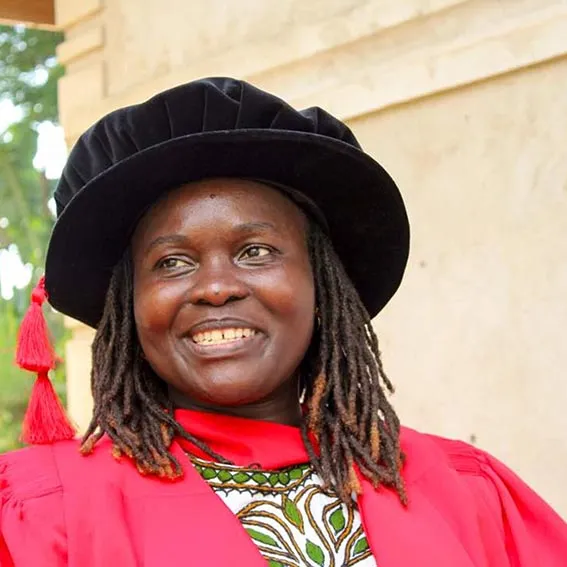By Asenath Were
Uganda Christian University’s (UCU) Emily Comfort Maractho was promoted to Associate Professor in Media Studies in May 2024, six years after becoming a senior lecturer. She views this as an acknowledgment of her achievements in the fields of media, communication, and development.
The newly appointed professor says that as an academic who does a lot of work in media development, a lot of her research energy is going towards understanding the media challenges such as regulation issues, changing media, content, and audiences.
“I am happy just to focus my research energy in that direction so that we have a better understanding of what the issues are and what our strategic responses should be,” Maractho states.
Maractho’s journey to professorship has not been a walk in the park, so to speak. According to her, to become an associate professor, one must have contributed significantly to a particular discipline through a series of events like publications, one’s experience, the work they are doing in that field, and community service.
“When you get a PhD, you become a lecturer, then after some publications, you become a senior lecturer, and with some more publications, you become an associate professor. It is really to recognise your expertise in a certain field; in my case, it is media and development,” she points out.
To her, becoming a professor is hard work because you have to publish a book or several articles that cement your expertise in that field. She, therefore, hopes it will not take her forever to reach this milestone.
As a young girl, Maractho had always wanted to be a journalist; however, this dream did not come straight away for her because, at that level, one was required to have scored many points in the Uganda Advanced Certificate of Education exams to be given the course to do. No one in her school managed to score highly enough to get a government scholarship. Her mother then offered to sponsor her at Makerere University, but only for a course she could afford.
“I studied in a school in Arua, and none of us made it for the government sponsorship, so then my mother said she could pay for a private sponsorship, but it had to be a course she could afford, and development studies was one of those courses that was like the cheapest; it had the lowest tuition at the university, so I enrolled in that as a foundation,” Maractho says.
To her, this was the best thing that could have happened because development studies at the time were eclectic; one could read about anything, hence giving her a good foundation. “We read international relations diplomacy, economics, cultural studies, and so much more, at least in terms of just analysing the challenges of development in Africa and the developing world,” she emphasises.
About a year after graduating, Maractho was recruited and taught at Makerere University for 14 years. She was the coordinator of programmes in the Department of Development Studies, and taught various subjects including Human Rights in Development, Development Policy Science, Science and Technology for Development, and State and development. During that time, she continued to pursue her studies. “I went to Daystar University in Nairobi, where I did a master’s in communication and specialised in media studies; that is how my media journey started, thus my PhD in media studies as well,” she says.
She resigned from there in 2017 and joined UCU in 2018 as a lecturer of development studies.
After graduating with a PhD, she was appointed head of UCU’s Department of Journalism and Media Studies in 2018, replacing Ms Monica Chibita, who was promoted to Dean in the Faculty of Journalism, Media and Communication.
Maractho masterminded the introduction of a new curriculum which was put into play in 2021 as per the National Council for Higher Education’s (NCHE) directive for all colleges to reassess their curricula every five years.
Her initiatives led to the introduction of additional course units in the department, including Gender and Social Justice, Economics and Business Journalism, Journalism and Political Communication, and Media.
She says she has stayed in the profession because she is passionate about it and also wants to write; as a result, she has kept a column she writes in the Daily Monitor every Monday.


